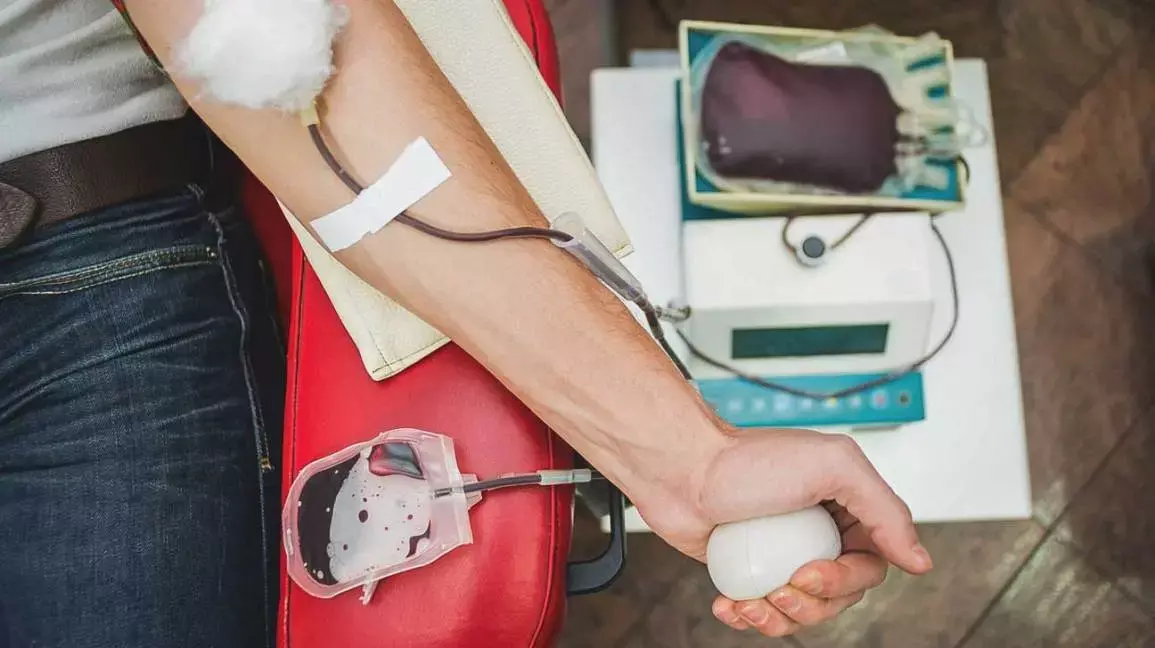- Home
- Medical news & Guidelines
- Anesthesiology
- Cardiology and CTVS
- Critical Care
- Dentistry
- Dermatology
- Diabetes and Endocrinology
- ENT
- Gastroenterology
- Medicine
- Nephrology
- Neurology
- Obstretics-Gynaecology
- Oncology
- Ophthalmology
- Orthopaedics
- Pediatrics-Neonatology
- Psychiatry
- Pulmonology
- Radiology
- Surgery
- Urology
- Laboratory Medicine
- Diet
- Nursing
- Paramedical
- Physiotherapy
- Health news
- Fact Check
- Bone Health Fact Check
- Brain Health Fact Check
- Cancer Related Fact Check
- Child Care Fact Check
- Dental and oral health fact check
- Diabetes and metabolic health fact check
- Diet and Nutrition Fact Check
- Eye and ENT Care Fact Check
- Fitness fact check
- Gut health fact check
- Heart health fact check
- Kidney health fact check
- Medical education fact check
- Men's health fact check
- Respiratory fact check
- Skin and hair care fact check
- Vaccine and Immunization fact check
- Women's health fact check
- AYUSH
- State News
- Andaman and Nicobar Islands
- Andhra Pradesh
- Arunachal Pradesh
- Assam
- Bihar
- Chandigarh
- Chattisgarh
- Dadra and Nagar Haveli
- Daman and Diu
- Delhi
- Goa
- Gujarat
- Haryana
- Himachal Pradesh
- Jammu & Kashmir
- Jharkhand
- Karnataka
- Kerala
- Ladakh
- Lakshadweep
- Madhya Pradesh
- Maharashtra
- Manipur
- Meghalaya
- Mizoram
- Nagaland
- Odisha
- Puducherry
- Punjab
- Rajasthan
- Sikkim
- Tamil Nadu
- Telangana
- Tripura
- Uttar Pradesh
- Uttrakhand
- West Bengal
- Medical Education
- Industry
High-dose tranexamic acid infusion results in reduced blood transfusion in cardiac surgery cases: JAMA

China: High-dose tranexamic acid infusion resulted in a moderate outcome of requiring allogeneic red blood cell transfusion among patients having heart surgery with cardiopulmonary bypass, says an article published in the Journal of American Medical Association (JAMA).
Tranexamic acid is indicated in heart surgery to reduce blood loss and transfusion. However, it is uncertain if a large dosage of tranexamic acid saves more blood than a modest dose without raising the risk of thrombotic problems or seizures during heart surgery. As a result, Jia Shi and colleagues carried out this study to assess the effectiveness and side effects of high-dose tranexamic acid vs low-dose tranexamic acid in patients having heart surgery with cardiopulmonary bypass.
This was a randomized, double-blind clinical trial of adult patients having heart surgery with cardiopulmonary bypass. From December 26, 2018, to April 21, 2021, 3079 participants were recruited in the trial at four hospitals in China; the final follow-up was on May 21, 2021. Participants were randomly assigned to either a high-dose regimen of 30-mg/kg bolus, 16-mg/kg/h maintenance dose, and 2-mg/kg prime (n = 1525) or a low-dose regimen of 10-mg/kg bolus, 2-mg/kg/h maintenance dose, and 1-mg/kg prime (n = 1506).
The key findings of this study were as follow:
1. The experiment was completed by 3031 (98.4%) of the 3079 participants who were randomly assigned to treatment groups.
2. Transfusion of allogeneic red blood cells occurred in 333 of 1525 patients (21.8%) in the high-dose group and 391 of 1506 patients (26.0%) in the low-dose group.
3. Postoperative seizures, thrombotic events, renal failure, and mortality occurred in 265 patients (17.6%) in the high-dose group and 249 patients in the low-dose group (16.8%).
4. Seizures occurred in 15 patients (1.0%) in the high-dose group and 6 patients (0.4%) in the low-dose group.
In conclusion, with regard to a composite primary safety endpoint composed of 30-day mortality, kidney dysfunction, seizure, and thrombotic events, high-dose tranexamic acid infusion as compared to low-dose tranexamic acid infusion led to a modest statistically significant decrease in the percentage of patients who required an allogeneic red blood cell transfusion.
Reference:
Shi, J., Zhou, C., Pan, W., Sun, H., Liu, S., Feng, W., Wang, W., Cheng, Z., Wang, Y., Zheng, Z., Fan, H., Yang, Y., Xu, F., … Gao, G. (2022). Effect of High- vs Low-Dose Tranexamic Acid Infusion on Need for Red Blood Cell Transfusion and Adverse Events in Patients Undergoing Cardiac Surgery. In JAMA (Vol. 328, Issue 4, p. 336). American Medical Association (AMA). https://doi.org/10.1001/jama.2022.10725
Neuroscience Masters graduate
Jacinthlyn Sylvia, a Neuroscience Master's graduate from Chennai has worked extensively in deciphering the neurobiology of cognition and motor control in aging. She also has spread-out exposure to Neurosurgery from her Bachelor’s. She is currently involved in active Neuro-Oncology research. She is an upcoming neuroscientist with a fiery passion for writing. Her news cover at Medical Dialogues feature recent discoveries and updates from the healthcare and biomedical research fields. She can be reached at editorial@medicaldialogues.in
Dr Kamal Kant Kohli-MBBS, DTCD- a chest specialist with more than 30 years of practice and a flair for writing clinical articles, Dr Kamal Kant Kohli joined Medical Dialogues as a Chief Editor of Medical News. Besides writing articles, as an editor, he proofreads and verifies all the medical content published on Medical Dialogues including those coming from journals, studies,medical conferences,guidelines etc. Email: drkohli@medicaldialogues.in. Contact no. 011-43720751


